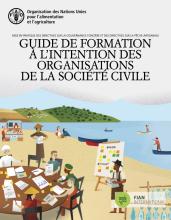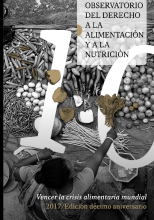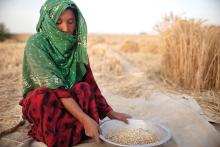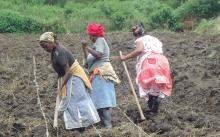Land Library
Welcome to the Land Portal Library. Explore our vast collection of open-access resources (over 74,000) including reports, journal articles, research papers, peer-reviewed publications, legal documents, videos and much more.
/ library resources
Showing items 1 through 9 of 318.Le présent guide de formation a été élaboré en partenariat avec plusieurs divisions de l’Organisation des Nations Unies pour l’alimentation et l’agriculture (FAO) et FIAN International, et a été adapté du guide d’apprentissage Mise en pratique des Directives volontaires sur les régimes fonciers:
Digital technologies cut off access to land
Despite promises to fix unjust land governance, a new study shows that digital technologies can further land grabbing and inequality.
La edición del décimo aniversario del Observatorio del Derecho a la Alimentación y a la Nutrición hace balance de la última década y mira al futuro para analizar los desafíos y las oportunidades que pueden anticiparse para los años venideros.
Land and associated property is a major source of individuals’ identity and livelihood.
It is widely accepted among economists and policy-makers that secure and well-defined land property rights are integral to poverty alleviation and economic prosperity. But how do legal systems, land tenure and economic development really relate to one another?
Access to land is key to achieving food security, poverty alleviation, social equity and environmental protection. A brief insight in land governance-related principles and policies of the German development assistance.
Following the end of apartheid, South Africa’s government set itself ambitious goals with a planned land reform. However, there have since been barely any changes in the country’s agricultural structure, and the positive impacts that were hoped for on rural livelihoods have hardly materialised.
Indigenous Peoples and local communities hold a large share of the world’s land area under customary systems. However, there is a tremendous gap between what is held by communities in practice and what is formally recognised by governments.








